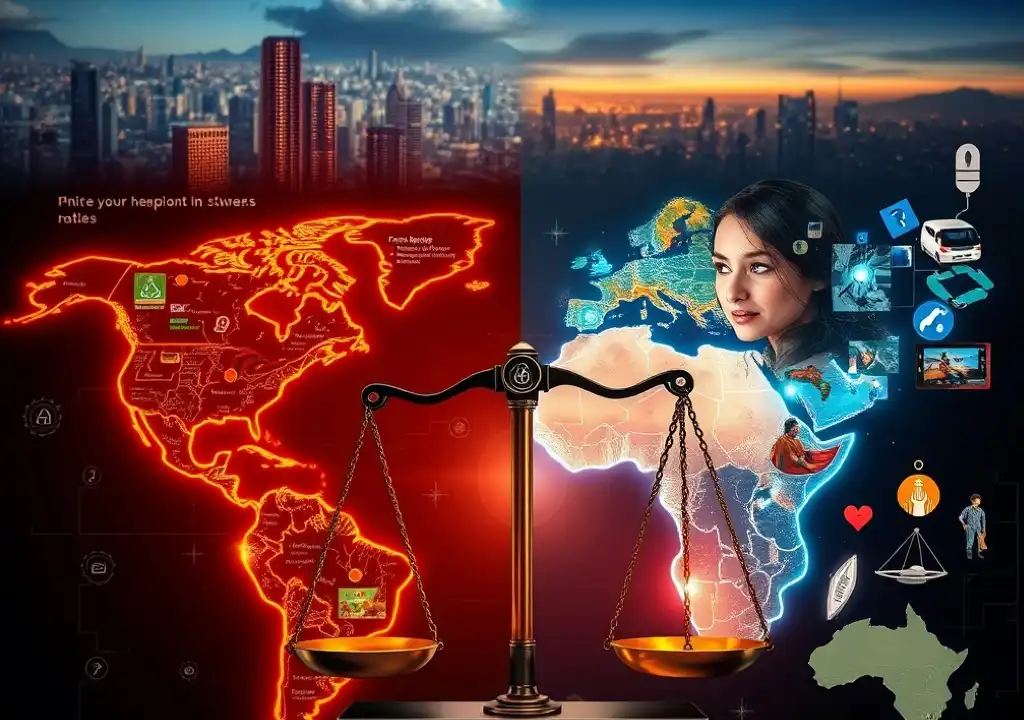AI technologies are widely seen as groundbreaking, but experts caution that they may reinforce existing biases and societal disparities.
Doha, Qatar – At one of the largest tech events in the world, Web Summit, which took place in Doha for the first time, there was one major topic on everyone’s mind: artificial intelligence (AI). From the main stage to side discussions and the numerous flashy company booths, AI’s potential was a hot topic for entrepreneurs, investors, and business leaders.
However, amidst the excitement, concerns are mounting that AI could deepen global inequalities. Experts warn that these technologies could perpetuate and even amplify existing biases in society.
Amplifying Bias in AI Systems
AI, like other technologies, is at risk of reinforcing prejudices that are already embedded in society, according to Ayo Tometi, co-founder of the Black Lives Matter movement. Speaking at the summit, Tometi highlighted how prejudice is often coded into technologies deployed within communities. She emphasized the need to address these biases.
Tometi pointed to predictive policing tools as a prime example, which have disproportionately impacted people of color, particularly Black Americans. These tools generally fall into two categories: one uses location-based algorithms to predict where crimes are likely to occur, while the other uses personal data such as age and gender to forecast who may be involved in criminal activities.
According to Deloitte, AI-driven smart technologies could reduce crime by 30-40% in cities. But Tometi cautioned that such technologies, which are often assumed to be neutral, can be problematic. “We’ve seen people imprisoned due to flawed facial recognition technology, which fails to identify our faces correctly,” she said, stressing that these technologies often perpetuate bias and discrimination.
The Digital Divide and AI
Another concern with AI technologies is their potential to widen the global digital divide. Alaa Abdulaal from the Digital Cooperation Organization in Saudi Arabia urged nations to focus on being producers of AI, not just consumers. He stressed that governments cannot tackle this issue alone and suggested civil society organizations should play a role in providing opportunities for upskilling to bridge the divide.
Jihad Tayara, CEO of UAE’s Evoteq, offered a different view. While acknowledging that the race for AI dominance depends on funding, he argued that AI’s global adoption is helping to reduce the digital gap. With better access to connectivity, lower costs for cloud computing and storage, and increasing data availability, Tayara believes nations are benefiting from broader access to AI.
However, some regions, such as sub-Saharan Africa, are still lagging in AI development, and Tayara’s team discovered during their visit that the infrastructure there isn’t yet equipped to replicate advanced AI solutions like those used in the pharmaceutical sector.
AI’s Global Impact
Despite disparities in AI development, countries worldwide are eager to tap into the technology’s potential. Frank Long, a vice president at Goldman Sachs, pointed out that the excitement around AI is due not only to its potential economic impact but also its geopolitical significance. The race to develop AI technologies is complex and multi-dimensional, with many global players participating in various layers of the AI stack. According to Long, it’s not just a straightforward competition between countries but a multifaceted, ongoing challenge.

